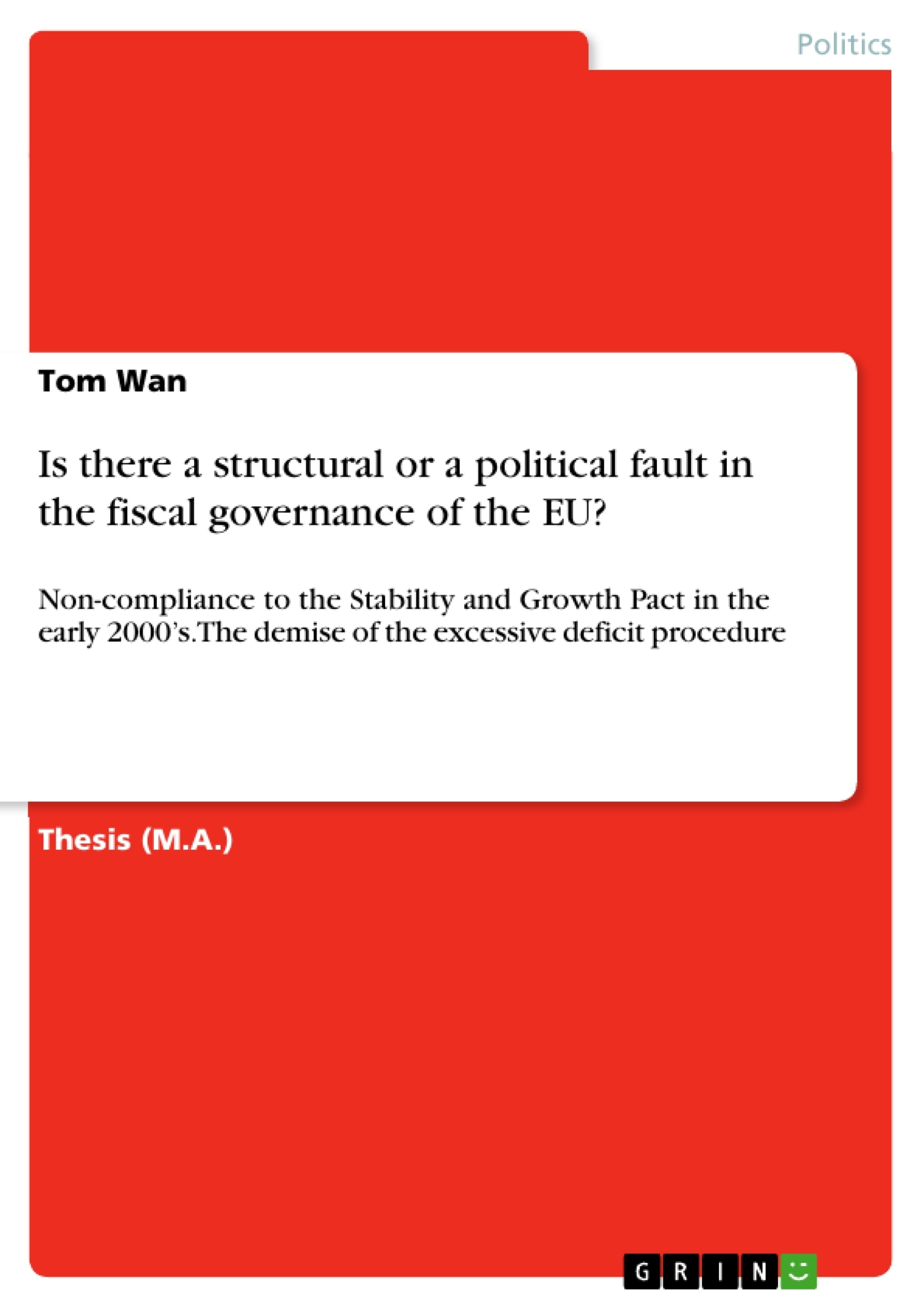The non-compliance to the Stability and Growth Pact in the early 2000’s was a direct challenge to the co-operative virtue of EU fiscal governance, and the fact that its occurrence played little role in affecting the stability for Europe’s most significant achievement yet – the Single Currency – was in itself a truly peculiar incident. Betrayed by the deeds of the two locomotives of the European Project, Germany and France, only four years after the adoption of the Euro – yet the currency strides on and none of the adverse effect that Economists feared had happened. But was that it?
The fact that both of these nations could escape sanction by coercing other nations in debt to vote against a punishment for their excessive fiscal deficit announced a deep functional fault in the enforcement of agreed EU treaties on the Commission’s part; and knowing that the stability of the Euro hinged upon an incomplete fiscal federation where fiscal responsibility laid heavily on the shoulders of the member states, there was indeed a commitment crisis exhibiting itself in 2003.
This paper aimed to answer two questions: first, what have caused the member states, such as France and most curiously, Germany, the one who had stressed the need for fiscal discipline every step of the way during the negotiation stage to safeguard the Euro, to renegade on a pact that was supposed to guarantee just that? Second, in light of the silence of the international capital market towards the incident, what, if any, had the demise of EDP contributed to the study of fiscal governance and political integration in the EU?
Inhaltsverzeichnis (Table of Contents)
- Abstract
- Introduction
- Background
- Literature Review
- Incomplete Fiscal Federation
- The architecture of SGP
- Inter-governmental vs. Supranational
- Empirical Evidence
- Germany and France
- Rest of the Eurozone
- Market Indifference?
- Conclusion
- Bibliography
Zielsetzung und Themenschwerpunkte (Objectives and Key Themes)
This paper aims to explore the non-compliance to the Stability and Growth Pact in the early 2000's, specifically focusing on the failure of the Excessive Deficit Procedure to sanction Germany and France. It seeks to understand the reasons behind this non-compliance and its implications for EU fiscal governance and political integration.
- The structural and political factors contributing to non-compliance with the Stability and Growth Pact.
- The role of the Excessive Deficit Procedure in enforcing fiscal discipline within the EU.
- The implications of the non-compliance for the stability of the Euro and the future of European integration.
- The impact of the non-compliance on the relationship between member states and the EU institutions.
- The effectiveness of the rule-based approach to fiscal governance in the EU.
Zusammenfassung der Kapitel (Chapter Summaries)
- Introduction: This chapter introduces the topic of non-compliance with the Stability and Growth Pact in the early 2000's, highlighting the failure of the Excessive Deficit Procedure to sanction Germany and France. It sets the stage for the paper's analysis by outlining the central questions and themes.
- Background: This chapter provides a historical overview of the political origins of fiscal restraints and governance in the EU, tracing the development of the Stability and Growth Pact from the Delors Report to the controversial decision of the ECOFIN in 2003.
- Literature Review: This chapter examines existing literature on structural and political arguments for the violation of the Stability and Growth Pact. It explores theories of incomplete fiscal federation, the architecture of the SGP, and the role of inter-governmental vs. supranational approaches to non-compliance.
- Empirical Evidence: This chapter presents a case study of Germany and France, analyzing empirical data to assess the impact of their non-compliance on the Euro and the broader European economy. It also examines the response of the international capital market to the situation.
Schlüsselwörter (Keywords)
The key terms and concepts explored in this work include: Stability and Growth Pact, Excessive Deficit Procedure, fiscal governance, European integration, non-compliance, Maastricht Treaty, Euro, monetary union, political economy, intergovernmentalism, supranationalism, and public choice theory.
Frequently Asked Questions
What is the Stability and Growth Pact (SGP)?
A set of rules designed to ensure that countries in the European Union pursue sound public finances and coordinate their fiscal policies.
Why did Germany and France fail to comply with the SGP in the early 2000s?
Both nations exceeded fiscal deficit limits but managed to escape sanctions by influencing other member states, revealing a functional fault in enforcement.
What is the Excessive Deficit Procedure (EDP)?
The legal mechanism for sanctioning EU member states that exceed the deficit and debt thresholds established by the Maastricht Treaty.
How did the international capital market react to this non-compliance?
Surprisingly, the market showed indifference, and the adverse economic effects feared by many economists did not immediately occur.
Is EU fiscal governance structural or political?
The paper explores whether the crisis was due to the design of the "incomplete fiscal federation" or purely political maneuvering by major powers.
- Citar trabajo
- Tom Wan (Autor), 2012, Is there a structural or a political fault in the fiscal governance of the EU?, Múnich, GRIN Verlag, https://www.grin.com/document/341402



